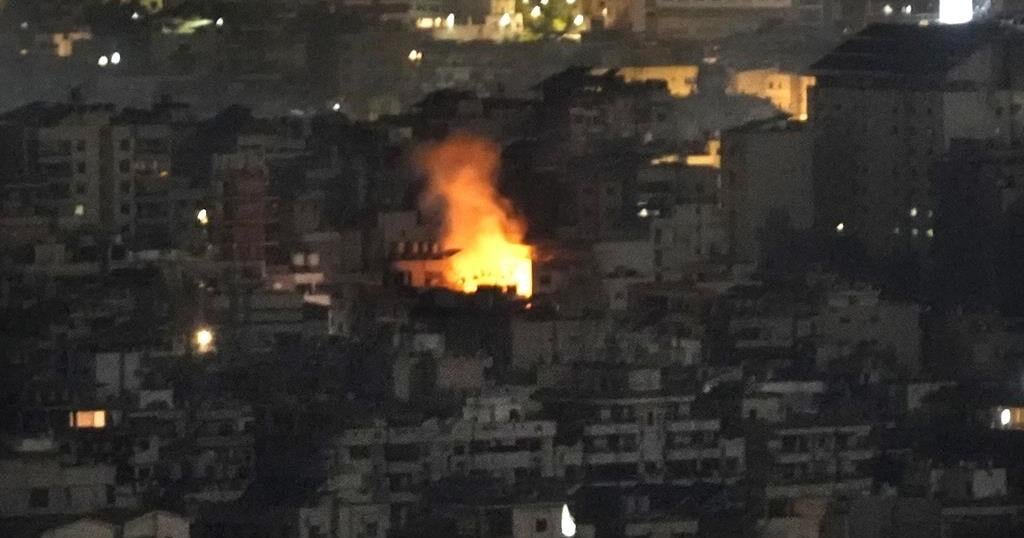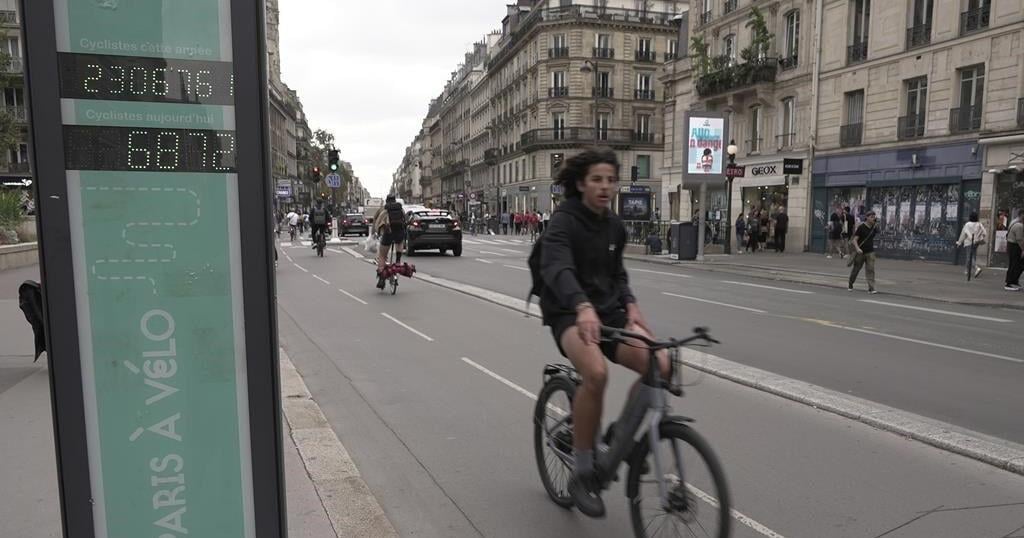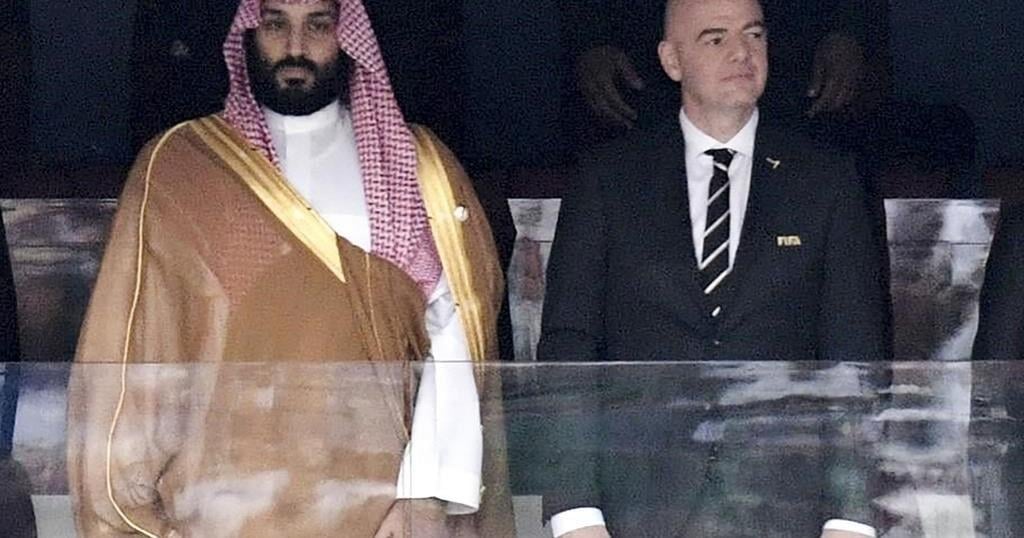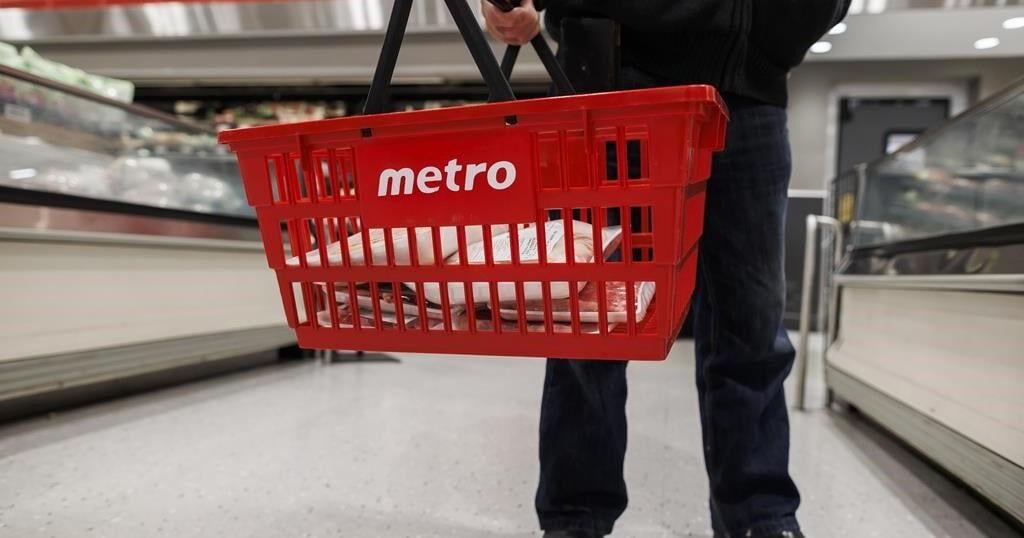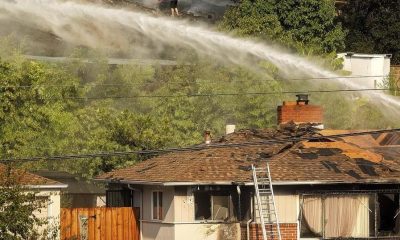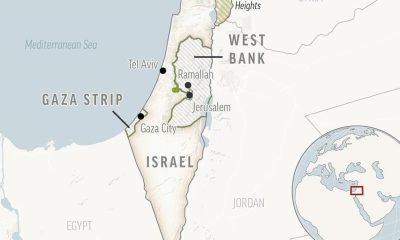The Israeli military apologized Monday for a strike that killed three Lebanese soldiers in southern Lebanon, saying it is not battling the country’s military and its troops believed they were targeting a vehicle belonging to the Hezbollah militant group.
Israeli strikes meanwhile hit nearly a dozen branches of a Hezbollah-run financial institution that Israel says is used to fund attacks but where many ordinary people keep their savings.
Last week, Hezbollah said it is entering a new phase in its fight against invading Israeli troops, as the region reckoned with the killing of top Hamas leader Yahya Sinwar in a battle with Israeli forces in Gaza. Sinwar was a chief architect of the attack on southern Israel that precipitated the latest escalating conflicts in the Middle East.
Israeli Prime Minister Benjamin Netanyahu has pledged to annihilate Hamas and recover dozens of hostages held by the group. Hamas says it will only release the captives in return for a lasting cease-fire, a full Israeli withdrawal from Gaza and the release of Palestinian prisoners.
On Oct. 7, 2023, Hamas-led militants blew holes in Israel’s security fence and stormed in, killing some 1,200 people, mostly civilians, and abducting another 250. Israel’s offensive in Gaza has killed over 42,000 Palestinians, according to local health authorities, who do not distinguish combatants from civilians. The war has destroyed large areas of Gaza and displaced about 90% of its population of 2.3 million people.
___
Here’s the latest:
Lebanese police try to evict hundreds of displaced from an abandoned building in Beirut
BEIRUT — Lebanese police stormed an abandoned building in Beirut’s commercial district, Hamra, to evict hundreds of displaced by Israel’s war on Hezbollah, who have been squatting there for weeks.
Lebanese authorities have prepared hundreds of shelters to accommodate the displaced. But as their numbers climbed to nearly 20% of the population, or an estimated 1.2 million people, official shelters have not been able to cope.
Tens of thousands had fled their homes since last year. An Israeli escalation last month has driven out an additional hundreds of thousands of people from the south, Bekaa and the southern suburbs of Beirut, many of them often fleeing with nothing more than the clothes they are wearing.
Most of the formal shelters prepared by the government are at full capacity, housing nearly 200,000 people.
Most of the displaced have sought accommodation with relatives and friends around Lebanon. But many have taken to beaches and open spaces, where they set up shelters. With winter approaching, they are seeking a roof over their head.
Scuffles broke out Monday between police and many of the displaced who refused to leave. An ambulance arrived to remove a person who passed out. A woman threatened to jump off the balcony if she was forced to leave, yelling she refused to go to overcrowded government shelters, where there is no space and where she feared diseases.
It was not clear what prompted the sudden eviction. Lebanon’s Interior Ministry said it will not allow trespassing on private property despite the displacement crisis.
Over a dozen bodies collected in northern Gaza, medical workers say
CAIRO — Palestinian medical officials say they have collected over a dozen bodies of people killed in Israel’s ongoing air and ground operation in northern Gaza.
The Gaza Health Ministry’s emergency service said they included six men killed early Monday when they were trying to get drinking water in the urban Jabaliya refugee camp, the main focus of the operation.
Four others, including two women, were killed in a strike on an area sheltering displaced people in Jabaliya, it said. Another three people were killed in a strike on a school-turned-shelter in the border town of Beit Hanoun.
Dr. Hossam Abu Safiyya, the director of the nearby Kamal Adwan Hospital, said it was overwhelmed with wounded people and patients.
Israel launched the operation more than two weeks ago, saying Hamas militants had regrouped in Jabaliya after several previous military operations there. The military says it tries to avoid harming civilians.
Israeli authorities have dramatically reduced the amount of aid allowed into Gaza, raising fears among Palestinians that they are implementing a surrender-or-starve plan advocated by retired Israeli generals.
Israel ordered the entire population of the northern third of Gaza, including Gaza City, to evacuate to the south in the war’s opening weeks and reiterated those instructions this month. Around 400,000 people are believed to have remained in the north, which is encircled by Israeli forces and off limits to Palestinians who fled their homes there.
Israeli police arrest 7 citizens allegedly paid by Iran to gather intelligence
JERUSALEM — Israeli police have arrested seven citizens who they say were paid by Iran to collect intelligence for over two years.
In a statement released Monday, Israel’s internal security agency and police said that the seven collected information about other Israelis and photographed Israeli military installations, including missile defense systems, air force and naval sites, and power plants.
Iran paid them paid hundreds of thousands of dollars, often in cryptocurrency, the statement said. It did not provide evidence for the alleged plot.
Israeli authorities say they have foiled several recent plots by Iran that involved recruiting Israelis for espionage or assassinations.
Israel has vowed to retaliate for Iran’s Oct. 1 ballistic missile attack. Israeli air defenses shot down most of the missiles, but some hit Israeli military installations.
Israel and Iran have waged a shadow war for years that burst to the surface after Hamas’ Oct. 7, 2023, attack triggered the war in Gaza. Israel and Iran exchanged fire directly for the first time in April.
Iran supports armed groups across the region, including Hamas in Gaza and Hezbollah in Lebanon.
Macron calls for a cease-fire in a phone call with Netanyahu
PARIS — French President Emmanuel Macron called once again for a cease-fire in Gaza and Lebanon in a phone call with Israeli Prime Minister Benjamin Netanyahu on Monday, the Elysee Palace said in a statement.
Macron said the elimination of Hamas’ top leader Yahya Sinwar last week in Gaza “must be an opportunity to begin a new phase of negotiation” for a cease-fire, the release of hostages and the entry of humanitarian aid into Gaza.
Macron alo called for Israel to preserve infrastructure and protect civilians in Lebanon.
Macron shared his intention to keep communication channels open with Teheran, “to obtain guarantees on Iran’s nuclear program, ballistic program and regional policy,” the statement.
Relations between the two leaders became tense recently after Macron called for “a halt to arms exports for use in Gaza,” drawing strong criticism from Netanyahu.
Head of Israel’s security agency visited Cairo to discuss cease-fire talks
CAIRO — The head of Israel’s internal security agency has visited Cairo to discuss reviving Gaza cease-fire talks after the killing of Hamas leader Yahya Sinwar, officials said.
Israel and Hamas, as well as Egypt, which has served as a key mediator, appear to still be divided over whether Israel would retain control over parts of Gaza, a dispute that dragged the talks to a halt in August.
An Egyptian official said Ronen Bar, the head of Israel’s Shin Bet security agency, held an hourslong meeting Sunday with Egypt’s newly appointed intelligence chief, Hassan Mahmoud Rashad.
An Israeli official also confirmed the visit, speaking on condition of anonymity because it was not publicized. The visit was widely reported by Israeli media.
The Egyptian official, who was not authorized to brief media and spoke on condition of anonymity, said they discussed the possibility of reviving the negotiations after the death of Sinwar, who was killed in an Israeli military operation last week.
The official said Egypt is still opposed to any Israeli presence in a strip of land running the length of the Gaza side of the territory’s border with Egypt, and that Hamas is unlikely to lift its demand for a full Israeli withdrawal from Gaza.
Hamas has said its demands for a lasting cease-fire, Israel’s full withdrawal from Gaza and the release of a large number of Palestinian prisoners in return for dozens of hostages held in Gaza for over a year have not changed following Sinwar’s death.
Bar also visited Egypt last Tuesday, before Sinwar’s death.
— By Samy Magdy in Cairo and Julia Frankel in Jerusalem
Lebanon’s caretaker PM calls for implementation of UN resolution to end fighting
BEIRUT — Lebanon’s caretaker prime minister says implementing a nearly 2-decade-old U.N. resolution still offers the best path to ending the Israel-Hezbollah war.
In an interview with the Al-Arabiya network broadcast Monday, ahead of the arrival of a U.S. envoy, Najib Mikati said a new resolution appeared unlikely.
“There is no solution but a diplomatic solution, and the diplomatic solution is currently on the table,” he said.
U.N. Security Council Resolution 1701, which ended the 2006 Israel-Hezbollah war, called for Hezbollah to withdraw from the border and for U.N. peacekeepers and the Lebanese army to control southern Lebanon, without any Hezbollah or Israeli presence.
Israel says the resolution was never implemented and that Hezbollah built up extensive military infrastructure right up to the border. Lebanon has long accused Israel of violating its airspace and failing to abide by other provisions of the resolution.
U.S. envoy Amos Hochstein, who was in Beirut on Monday, said U.N. resolution 1701 is “no longer enough” and a new mechanism must be put in place to ensure it is implemented “fairly, accurately, transparently.”
“1701 was successful at ending the war in 2006, but we must be honest that nobody did anything to implement it,” Hochstein said in a news conference after meeting with Berri. “The lack of implementation over those years contributed to the conflict that we are in today.”
Hezbollah, which said it would continue attacks on Israel until there is a cease-fire in Gaza, appears to have softened that position in recent weeks as Israeli strikes have eliminated much of its top leadership and pounded large areas of Lebanon.
Hezbollah now says it supports the diplomatic efforts of Mikati and Lebanese Parliament Speaker Nabih Berri, a political ally of the militant group. Both Lebanese leaders have said they are no longer seeking to tie a cease-fire in Lebanon to one in Gaza.
Israeli military apologizes for strike that killed Lebanese soldiers
JERUSALEM — The Israeli military has apologized for a strike in southern Lebanon that killed three Lebanese soldiers.
The military said it struck a truck on Sunday that had entered an area where it had previously targeted a Hezbollah truck transporting a launcher and missiles.
The military said soldiers were not aware that the second truck belonged to the Lebanese army.
The military said it is “not operating against the Lebanese Army and apologizes for these unwanted circumstances.”
Lebanon’s army is a respected institution within the country, but it is not powerful enough to impose its will on Hezbollah or defend Lebanon from Israel’s invasion. The army has largely kept to the sidelines as Israel and Hezbollah have traded blows over the past year.
Israeli forces invaded southern Lebanon at the beginning of the month and have been operating in a narrow strip along the border. Israeli airstrikes have pounded large areas of the country, targeting what Israel says are Hezbollah sites.
The militant group has fired thousands of rockets, missiles and drones into Israel since Oct. 8, 2023, the day after its ally Hamas launched a surprise attack into Israel, triggering the war in Gaza.

